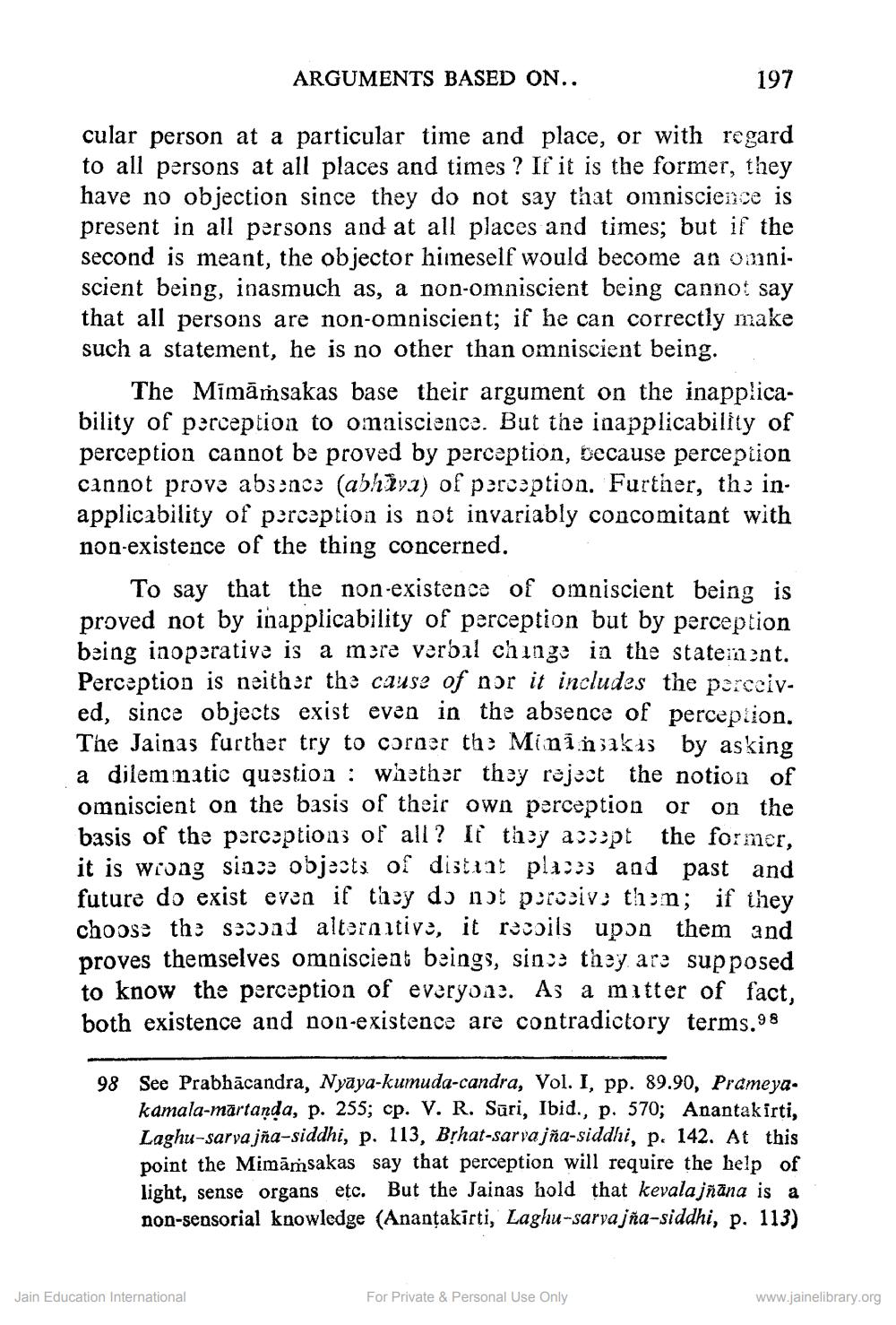________________
ARGUMENTS BASED ON..
197
cular person at a particular time and place, or with regard to all persons at all places and times ? If it is the former, they have no objection since they do not say that omniscience is present in all persons and at all places and times; but if the second is meant, the objector hiineself would become an oanniscient being, inasmuch as, a non-omniscient being cannot say that all persons are non-omniscient; if he can correctly make such a statement, he is no other than omniscient being.
The Mimāṁsakas base their argument on the inapplicability of perception to omniscience. But the inapplicability of perception cannot be proved by perception, because perception cannot prove absence (abhiya) of perception. Further, the in. applicability of perception is not invariably concomitant with non-existence of the thing concerned.
To say that the non-existence of omniscient being is proved not by inapplicability of perception but by perception being inoperative is a more verbal chinge in the statement. Perception is neither the cause of nor it includes the perceived, since objects exist even in the absence of perception. The Jainas further try to corner the Mininsakis by asking a dilem matic question : whether they reject the notion of omniscient on the basis of their own perception or on the basis of the perceptions of all? I they ac:spt the former, it is wrong since objects of distint places and past and future do exist even if they do not perceiv; then; if they choose the second alternitive, it racoils upon them and proves themselves omniscient beings, since they are supposed to know the perception of everyone. As a matter of fact, both existence and non-existence are contradictory terms.98
98 See Prabhācandra, Nyaya-kumuda-candra, Vol. I, pp. 89.90, Prameya.
kamala-mārtanda, p. 255; cp. V. R. Sūri, Ibid., p. 570; Anantakirti, Laghu-sarva jña-siddhi, p. 113, Brhat-sarvajña-siddhi, p. 142. At this point the Mimāmsakas say that perception will require the help of light, sense organs etc. But the Jainas hold that kevala jñāna is a non-sensorial knowledge (Ananțakirti, Laghu-sarvajña-siddhi, p. 113)
Jain Education International
For Private & Personal Use Only
www.jainelibrary.org




